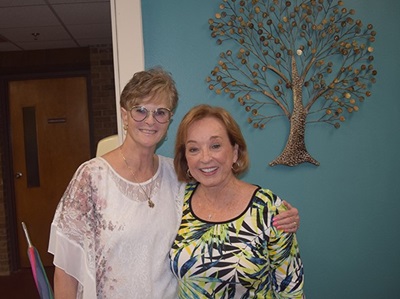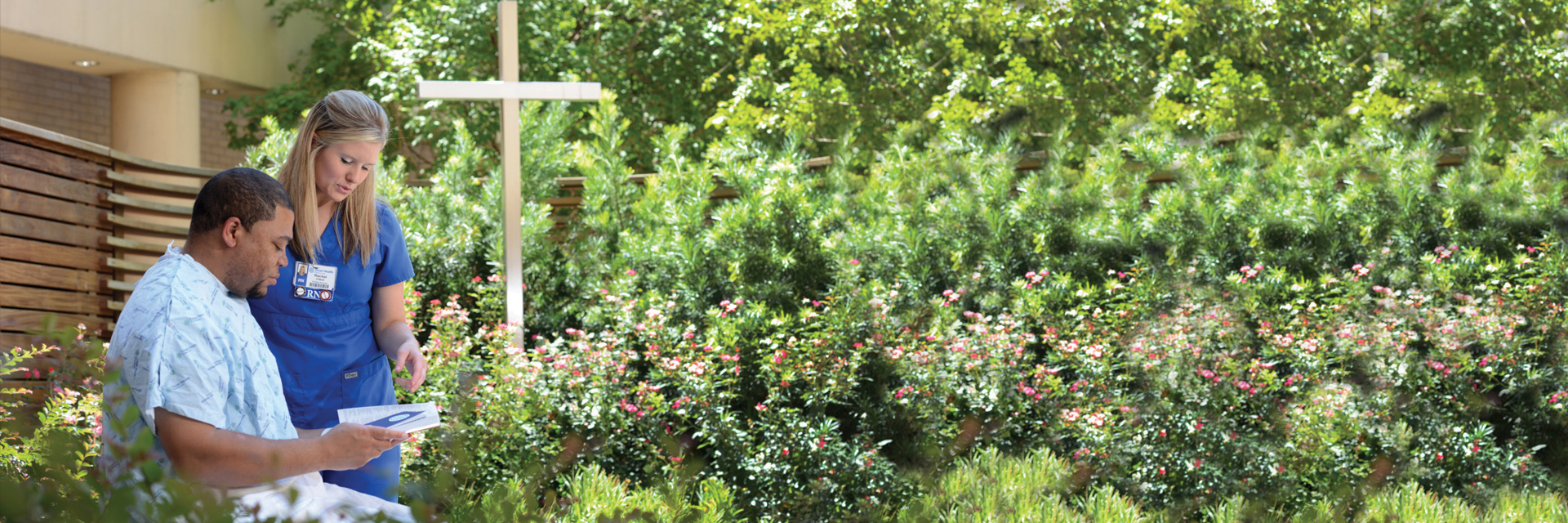 When Patty Maggard of Cleburne organized a Texas Health Faith Community Nursing class on advance care planning (ACP) and then attended with her husband, they weren't expecting to use the material anytime soon.
When Patty Maggard of Cleburne organized a Texas Health Faith Community Nursing class on advance care planning (ACP) and then attended with her husband, they weren't expecting to use the material anytime soon.
Still, they took time to discuss the paperwork and made decisions over the next few months: Who should have medical power of attorney should either of them become incapacitated? Did they want to be buried or cremated? What advance directives should be given to physicians?
Three years later — on Valentine's Day this year — Patty's husband Wayne died of a progressive lung disease. Because of the planning they had done, he passed away quietly in hospice care, as he wished.
"It wasn't as difficult as it would have been if we had not had those discussions," said Patty, a volunteer health promoter for Faith Community Nursing. "He didn't want to be kept alive just to be kept alive." She felt so strongly about the class's value she made a video — she rehearsed dozens of times to get through it without crying — urging people to come to the next class.
Strategic Decision
The decision to conduct the classes in a faith setting — in Patty's case it was First United Methodist Church of Cleburne — is strategic.
"Faith communities are key places to help people understand the importance of planning ahead for end of life decisions," said Saundra Brown, R.N., Texas Health Faith Community Nursing resource coordinator. She said people are more likely to feel comfortable discussing such matters in a faith setting.
"Faith communities live with life and death every day," she said. "When a pastor supports something, it's amazing how many will follow."
Faith Community Nursing wrote the program for the ACP classes, and provides them in faith communities across North Texas — reaching 510 people from 2016 through 2019. The number increases each year. More than 100 faith community nurses trained by Texas Health maintain 122 congregational covenants in North Texas.
"When we hear about needs in the faith communities, our passion is to be able to provide resources that meet them. This is just one example of the many ways our faith community nurses and health promoters help the people in the communities we serve," said Caryn Paulos, M.S.N., R.N.-BC, director of Faith Community Nursing.
To look into the effectiveness of the classes, Faith Community Nursing is working on a research study, said Cheryl Mart, M.S.N., R.N.-BC, Faith Community Nursing coordinator.
"Individuals are generally uninformed regarding the concept of ACP, on the role of the healthcare decision maker, on health care interventions and how they impact quality of life. Our team is excited to be working on this important community initiative," Cheryl said.
Many Benefits
Without advance care planning, family members can be left both grieving and confused, Saundra said.
"My dad refused to discuss it, and it left me and my sister in a horrible spot when he passed," she said. On the other hand, Saundra said that at her urging an aunt did make plans.
"Having this made everything go so much better," Saundra said. "No fighting, no blaming, no keeping her on life support forever."
Faith community leaders also benefit from the classes, she said.
"I personally have found, over my 20-year nursing career, that many pastors do not understand their role in ACP per the state of Texas," Saundra said. "They are caught off-guard when contacted by hospitals. Having ACP classes has helped to not only educate the family, but also the leadership."
Under state guidelines, pastors or religious leaders are on the chain of contacts to make medical decisions for congregation members if family members or a spouse are not available, Saundra said.
Caregivers at hospitals also benefit when a family has looked ahead and planned.
"This creates a huge positive impact on health care-related decisions and relieves spiritual distress that many RN's face at the bedside," Saundra said. "The worst time to discuss end of life decisions is at end of life."

